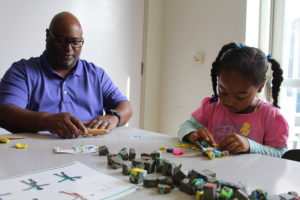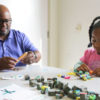It is commonly accepted that creativity is one of the most important skills to succeed in the 21st century– just ask the 1,500 CEO’s who rated it as the “most crucial factor for future success” in a 2010 global IBM poll (Tomasco, 2010), or LinkedIn Learning who found that “creativity is the most important skill in the world.” (Petrone. 2019). Even so, how common is it to hear people protest “I’m just not that creative.” Perhaps even you have said this before. Isn’t it odd that so many people are quick to praise the importance of creativity, but just as quickly will shun the idea of being creative themselves?
There is a rift present- a mismatch between one’s value judgment and confidence in creativity. This mismatch actually points to a documented phenomenon, dubbed by some as “The Creativity Crisis,” where scores on creative thinking tasks have significantly decreased since 1990 for students in America, with the greatest score decreases occurring for children in kindergarten to third grade (Kim, K.H. 2011). Why is it that children are performing worse, is it just because we are born less creative now? No, of course not- researchers believe that this downward trend in creativity scores is due to schools not cultivating creativity in the classroom. Which, when you think of it, makes sense.
Over the past decade, the American school system has turned its focus more to standardized testing, and as a result our children have had less of a chance to practice being creative. This is especially true for lower-resource schools. Due to the nature of the American school system’s values, schools with higher test scores receive more resources and funding. Therefore, the schools that need additional funding the most are forced to focus more on preparing their students for the test, rather than teaching “softer” skills such as creativity. Those who do have the opportunity to practice being creative in school are often more affluent, which leads to equity and opportunity gaps surrounding the most important skills for success in the 21st century.
There is good news, however! Creativity is a skill that all children are innately born with! Caregivers and educators simply need to nurture and encourage creativity in their children, and give them the space and opportunity to be creative throughout their development. If children have more chances to be creative as they develop, it makes sense that they would grow into adults with more confidence in their creativity. As the great Maya Angelou said, “ You can’t use up creativity.The more you use, the more you have.”
That’s why the Children’s Creativity Museum designs its activities intentionally to give opportunities for kids to spend time imagining, creating and sharing in their own unique way. We believe that with a little bit of #CreativityEveryday, anyone and everyone can become creatively confident.




Leave a Reply